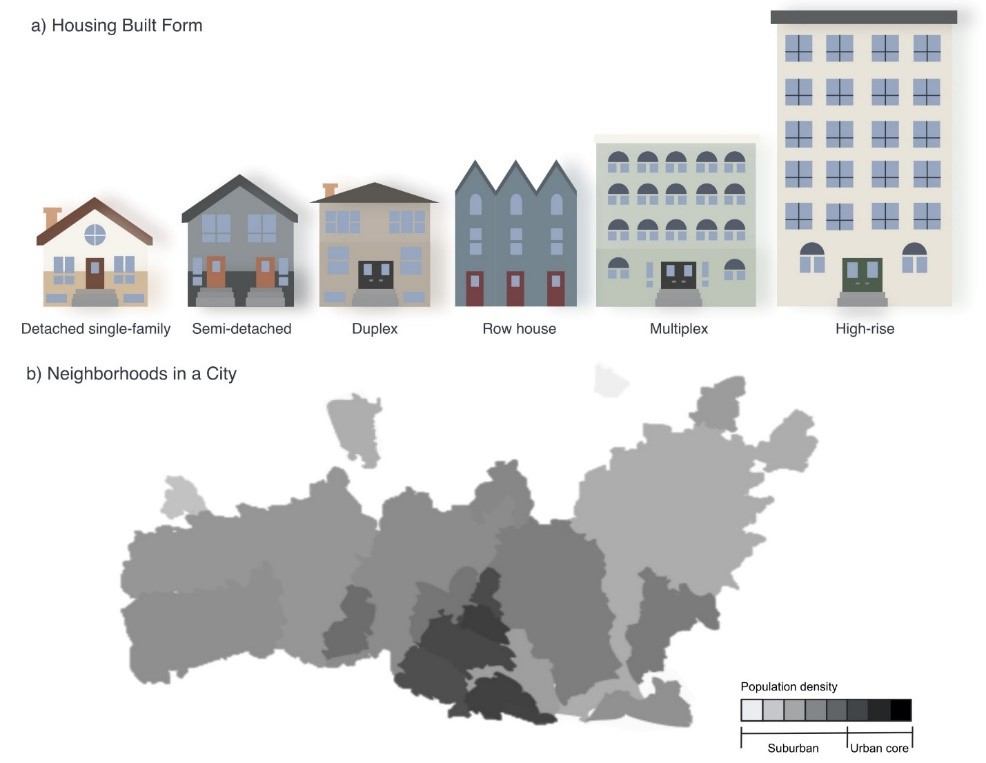Environmental Impacts of Housing Form
This project assesses the holistic life cycle environmental impacts of housing forms and evaluates different engineering design, planning, and policies to mitigate them.
Status: Current
Research themes: Energy and GHG emissions
Research areas: Building design and retrofits for performance improvement
Project Objective
This project aims to develop a holistic housing life cycle assessment framework through systematic reviews of planning policies, sustainability impacts of housing, and life cycle assessment studies. The framework was then used to empirically examine the GHG emissions of different housing forms considering the impacts from building and road construction, building operations, and daily resident mobility requirements.
Approach
Life cycle assessment was used to estimate the greenhouse gas emissions of four housing forms (detached houses, attached houses, low-rise and high-rise multi-unit residential buildings) in the City of Toronto. We aggregated the per capita GHG emissions to housing form and neighborhood levels and statistically analyze the GHG emissions with built environment and socioeconomic characteristics.
Findings
The framework supports future housing life cycle assessment in terms of selecting appropriate functional units, scoping system boundaries, and incorporating temporal uncertainty and contextual circumstances underlying housing projects. The findings from the life cycle assessment will inform planners of the types of housing forms and characteristics of the built environment (e.g., mix-used development, transport oriented-development) that results in the lowest GHG emissions comparatively.
Publications
Journal Publications
Ruiz-Valero, L., Arceo, A., Kesik, T., Touchie, M.F., O’Brien, W., “Life Cycle Assessment of Housing and Neighbourhoods: A Systematic Review,” Renewable and Sustainable Energy Review, 210 (2025), 115249. doi: 10.1016/j.rser.2024.115249
Arceo, A., Touchie, M.F., O’Brien, W. “Beyond Density: Examining Overlooked Drivers of Housing and Neighborhood Greenhouse Gas Emissions,” Sustainable Cities and Society, 120 (2025), 106131, doi: 10.1016/j.scs.2025.106131
Arceo, A., O’Brien, W., Touchie, M.F. “Ten questions concerning the environmental impacts of housing built form,” Building and Environment, 256, (2024) 111490, doi: 10.1016/j.buildenv.2024.111490
People Involved

Principal Investigator

Dr. William O’Brien
Principal Investigator

Dr. Ted Kesik
Co-Investigator

Post Doctoral Fellow

